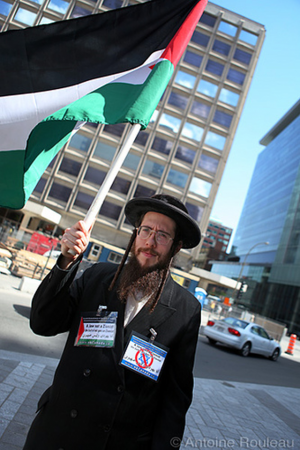Tuning In
Diasporic Contact Zones at the BBC World Service

You are here
- Home
- Core research themes
- Religious Transnationalism
Religious Transnationalism

This theme investigated changing patterns of religious transnationalism, with a specific focus on seeking to elucidate the distinctive role of the BBC World Service (BBCWS) services in providing forums for discussion (opportunities for 'global conversation') in an increasingly crowded and interactive mediascape. We also placed a special emphasis on Islamic transnationalism, given its prominent role in the mediascape and evidence that diverse Muslim groups in Europe perceive bias against Islam in Western media organisations. BBCWS - while not completely immune from such suspicions – arguably has a unique place in the minds of Muslim listeners and viewers, being highly trusted. This makes it a potentially significant medium for Muslim diasporas, in spite of the massive growth of transnational media, especially television, based in Muslim majority (especially Arab) societies, especially during the last decade.
In this context, we sought to examine how trust in the BBCWS is constructed and maintained specifically through its interactive services, including World Have Your Say phone in programmes and forums, and Have Your Say message boards, both in English and Arabic. This has complemented the work done on the launch of BBC Arabic and Persian television led by Annabelle Sreberny (see Regional Focus: Greater Middle East Cross-Theme Research Topic), as well as developing a method for the analysis of online forums used in the research on Hindi and Urdu forums led by Marie Gillespie (see Regional Focus: South Asia Cross-Theme Research Topic). We interviewed editors working on World Have Your Say phone in programmes and on World Have Your Say and Have Your Say message boards and forums, to better understand the production process and producer perspectives, and how this articulates with user views as represented on the forums and message boards.
Research questions
- What is the distinctive role of BBCWS interactive services in an increasingly crowded and interactive mediascape?
- How is the BBCWS vision of a 'global conversation' realised through its interactiveservices, for example in facilitating discussion of sensitive topics such as the political dimensions of religious transnationalism?
- How is trust in the BBC constructed and maintained through its interactive services?
Theme convenor
Dr David Herbert, Faculteit der Godgeleerdheid en Goddienstwetenschap, Rijksuniversiteit Groningen, Oude Boteringestraat 38, 9712 GK Groningen, Netherlands, 0031 503635593, d.e.j.herbert@rug.nl

